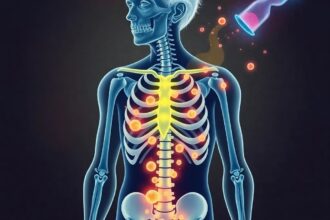Exploring how gut health impacts mental well-being through probiotics, prebiotics, and diet, with insights from recent studies and experts.
Discover how your gut health influences your mental well-being and the role of diet in maintaining a healthy mind.
The Gut-Brain Axis: A Vital Connection
Recent research has highlighted the profound connection between gut health and mental well-being, often referred to as the gut-brain axis. This bidirectional communication system links the emotional and cognitive centers of the brain with peripheral intestinal functions. According to a study published in the journal ‘Nature Microbiology,’ the gut microbiota can influence brain function and behavior, suggesting that a healthy gut is crucial for mental health.
Probiotics and Prebiotics: Allies for Mental Health
Probiotics, the beneficial bacteria found in fermented foods like yogurt and kefir, and prebiotics, the fibers that feed these bacteria, play a significant role in maintaining gut health. Dr. Emeran Mayer, a gastroenterologist and author of ‘The Mind-Gut Connection,’ emphasizes that ‘a balanced gut microbiome can help reduce symptoms of anxiety and depression.’ A 2020 study in the ‘Journal of Psychiatric Research’ found that participants who consumed probiotics experienced a significant reduction in depressive symptoms compared to those who did not.
The Role of a Balanced Diet
A balanced diet rich in fruits, vegetables, whole grains, and lean proteins supports a healthy gut microbiome. The Mediterranean diet, in particular, has been shown to promote gut health and reduce the risk of mental health disorders. According to a 2019 study in the ‘Journal of Nutrition,’ individuals who adhered to a Mediterranean diet had lower levels of inflammation and a more diverse gut microbiota, which are associated with better mental health outcomes.
Expert Opinions and Future Directions
Experts like Dr. David Perlmutter, author of ‘Brain Maker,’ advocate for the importance of diet in mental health. ‘The food we eat directly impacts the health of our gut, which in turn affects our brain,’ he states. As research continues to uncover the complexities of the gut-brain axis, the potential for dietary interventions to improve mental health becomes increasingly promising.




